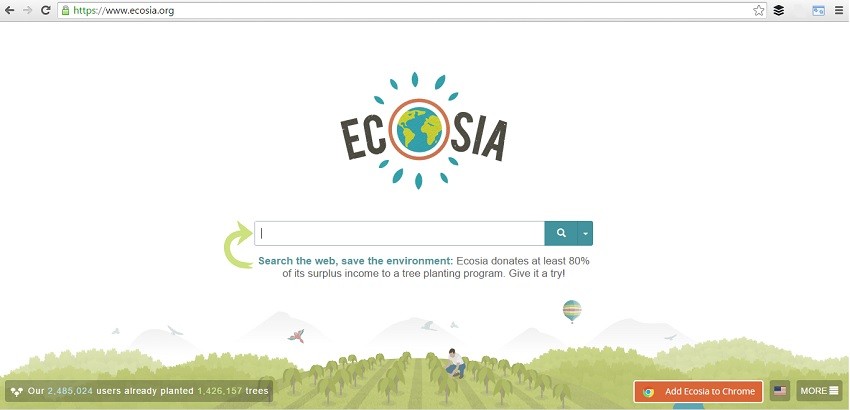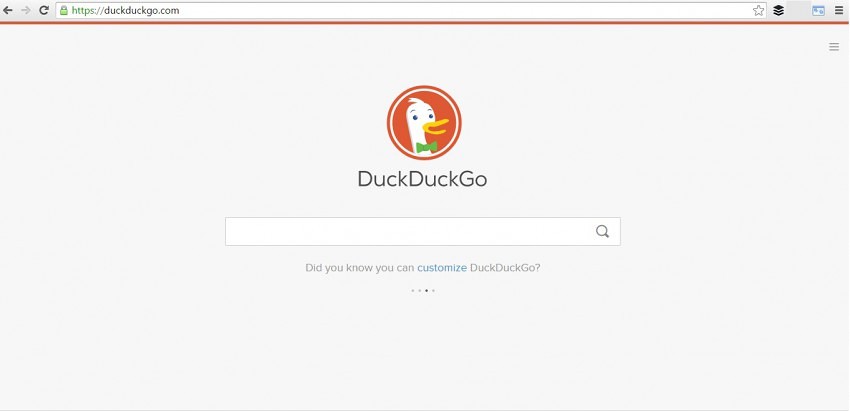Try These Ethical Alternative Search Engines
To support the running costs of Moral Fibres, this post contains affiliate links. This means Moral Fibres may earn a small commission, at no extra cost to readers, on items purchased through these links.
If you’re looking for alternative search engines to Google, then here are my top more ethical search engines that you might want to try too.
Search engines act as our virtual compasses, guiding us through the deepest recesses of the World Wide Web. However, not all search engines are equal. Whilst most are good at pulling up answers to your queries in a flash, not all search engines respect your privacy, values, or the environment.
Whilst Google, in particular, is great at finding everything you need to know, there is a trade-off. That trade-off is that Google knows everything about you through your search history.
Search engines are often what we turn to first for information. Google will know if you’re looking for a job or if you’ve lost your job. It will know if you think you might be pregnant or if you think you might be in labour. If you’re ill, Google will know. Google will know your interests and hobbies. And Google will perhaps know some things you’d rather not share with even your closest friends. Say, for example, if you discovered your other half has a thing for wearing ladies’ underwear then chances are Google would know about it first!
You might think Google isn’t interested in data about you. But Google makes its money through selling advertising. The more targeted an advert is to you and your interests, the more money Google makes. It’s no wonder that Google is one of the richest companies in the world – it’s all built on information about you.
Coupled with Google’s well-documented tax avoidance, it doesn’t paint a pretty or ethical picture. It doesn’t have to be this way though – I’ve found some alternative ethical search engines that may align more favourably with your principles, whilst in some cases making a positive impact on the planet.
The Best Alternative Ethical Search Engines To Know

Here are my top alternative ethical search engines that contribute to a better world. From planting trees to those with a zero-tracking policy, do take a look:
Ecosia

In my search for alternative search engines, I came across Ecosia. This is a green search engine that donates all of its surplus income to conservation organisations that plant trees where they are needed most.
Transparency is key. As such, Ecoia publishes monthly financial reports. These show exactly how much money they made from your searches, and what percentage of their revenue went towards trees.
Ecosia does not pay out any dividends to its owners. All profits stay within the company and will eventually be invested or used for tree planting.
What I like is that searches on Ecosia are powered by 100% renewable energy. Ecosia plants trees that fight climate change by removing carbon dioxide from the atmosphere. And thanks to Ecosia’s own solar plants, which it started building back in 2018, this is helping to accelerate the energy transition away from fossil fuels by adding solar energy to the electricity grid.
And you don’t have to sacrifice low-quality results to do good. Ecosia uses Bing and its own search algorithms. Ecosia’s association with Bing is not brilliant, as Microsoft, which owns Bing, has also been avoiding paying tax. However, the tree planting element of Ecosia gives it the ethical alternative search engine edge over Google.
Ecosia works just like Google. Simply search for what you want, and as well as your search results you’ll be presented with relevant adverts based on your search terms. If you click on a sponsored link the sponsoring company pays Bing for the click.
The difference here is that then Bing gives the bigger chunk of that money to Ecosia. Ecosia then donates at least 80% of this income to plant trees. Surfing with a conscience, if you will. So far Ecosia has planted over 120,000,000 trees, which is not to be sniffed at.
DuckDuckGo

I wondered if there were any other alternative search engines out there not tainted by tax avoidance. A bit more searching uncovered DuckDuckGo. This is a search engine that claims not to track you or collect information about you.
DuckDuckGo doesn’t store your previous searches and is forced to focus purely on its search function, rather than advertising. As such, it seems like a fairly smart and innocuous choice for web searching. And its search function is pretty good too. I’ve tried it out and found good-quality search results.
Whilst DuckDuckGo doesn’t have an environmental focus, like Ecosia, the plus is that it doesn’t contribute to tax avoidance. I’m chalking that up as a win.
OceanHero
Want to fight plastic pollution whilst surfing the web? Try OceanHero. This sustainable search engine says it recovers ocean-bound plastic every time you browse the web with it.
Simply carry out searches, like you would on any search engine and collect “shells” along the way – virtual tokens that you earn just by carrying out searches or answering fun questions about the ocean.
For every 100 shells collected (roughly 5 web searches), OceanHero can recover one plastic bottle from our oceans – paid through by displaying ads.
Wondering how it works? OceanHero works in association with its partner, PlasticBank. This is a social enterprise that builds recycling ecosystems in under-developed communities to fight plastic pollution in the ocean whilst reducing poverty, by paying people in these communities to collect plastic. So far, over 4,300 people are now exchanging plastic for money, school tuition or sanitation.
OceanHero does collect some data about you so that your bottle score doesn’t reset to zero every time you use it. However, OceanHero says that it doesn’t tie your searches or any other non-functional data to your profile at OceanHero. Furthermore, it does not use this information to target advertisements nor does it sell this personal information.
To get started, simply add the OceanHero Chrome extension to your desktop and search as normal. I’ve tried it out and liked what I saw. Top tip: switch on Ocean mode to enjoy a nice seascape whilst you search! The only thing I’m not so into is that OceanHero is powered by Bing.
MetaGer
MetaGer is an ad-free alternative sustainable search engine that emphasises privacy and green hosting. It’s run by the nonprofit organisation, SUMA-EV, which advocates for free access to knowledge on the Internet. It says “We advocate an open society in which it is possible to move in the digital world without snooping.”
As you would then expect, MetaGer does not store any personal information about its users. What I also love is that MetaGer’s servers are powered by renewable energy. This reduces the carbon footprint of your web searches.
Again, I’ve given MetaGer a whirl and have been impressed by its results. Although it is in part powered by Bing (as well as Scopia and OneNewspage).
Rapusia
Finally, Rapusia is a sustainable and ethical search engine alternative that uses its profits from displaying advertisements to you to help fund social and environmental projects. On average, a typical user will generate €15 in profits in a year that helps fund conservation and education projects.
Don’t worry about your data being shared. This South African organisation uses an anonymous search engine that doesn’t track your search activity, nor does it share any of your data with advertisers.
Transparency is key. Each month Rapusia publicly publishes its monthly financial reports and keeps users updated on all developments so that you can hold them to account. The only thing is I can’t find out how it is powered.
My Alternative Search Engine Recommendations
As far as alternative search engines go, Ecosia, OceanHero, Rapusia, and Metager are great for the environment. However, as most of them are powered by Bing, they are not so hot if you want to use a website not tainted by tax avoidance.
I might adopt a two-pronged approach to search engines – using one of these sustainable alternatives for general web searches (where to be honest, I’d be much more inclined to click on sponsored search results) and using DuckDuckGo (which doesn’t collect information about you) for looking for specific web pages (where I would be unlikely to click on sponsored search results anyway).
Have you used any of these search engines? What did you think? Or are there any other alternative search engines that you recommend? I’m all ears!
Found this post useful? Please consider buying me a virtual coffee to help support the site’s running costs.




